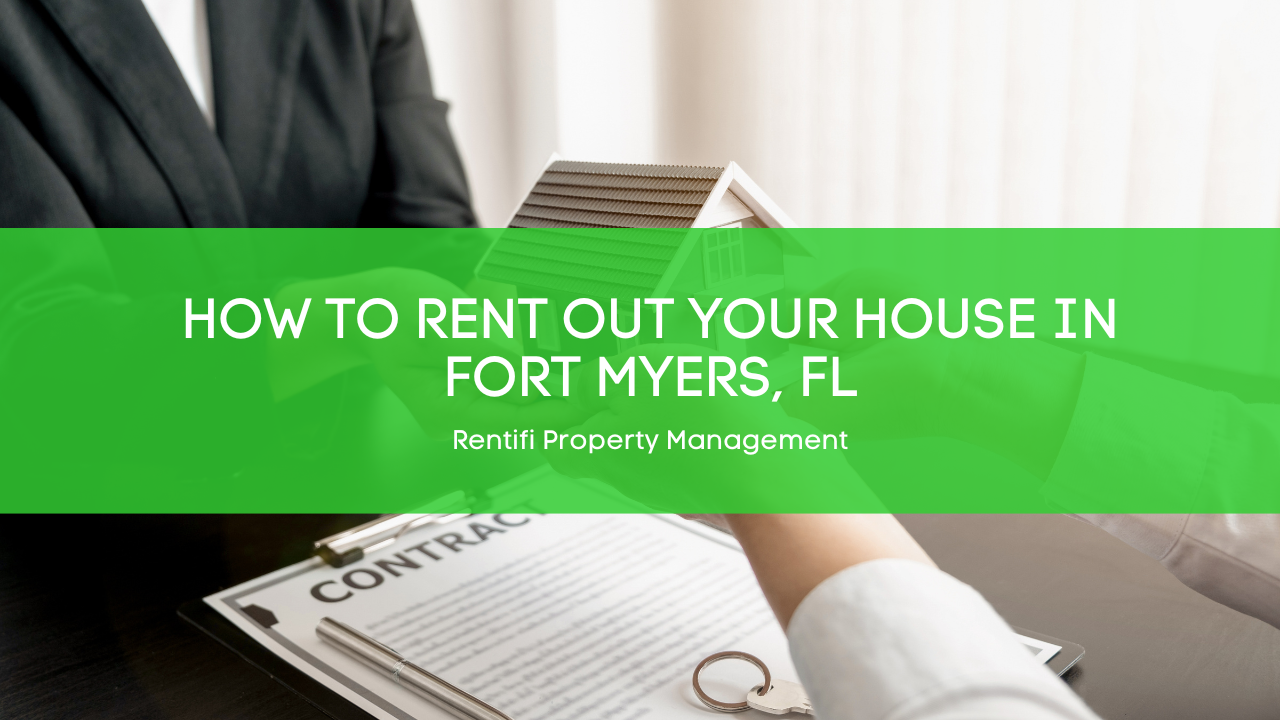Key Takeaways
Fort Myers offers strong rental potential with steady demand and property appreciation.
Knowing local rental laws helps protect your investment and keep everything compliant.
A well-maintained property and smart upgrades make your rental more appealing.
Strategic marketing ensures your home reaches a large audience quickly.
Are you thinking about renting out your Fort Myers home? You should go for it! Fort Myers is one of Florida’s most attractive markets for both short and long-term rentals.
With its year-round sunny weather, booming tourism industry, beautiful beaches, and growing population, this city offers excellent potential for steady rental income and property appreciation.
But while the location is ideal, renting out a property in Fort Myers isn’t as simple as listing it online and waiting for tenants to come knocking on your door.
Successful property management requires ample planning, legal know-how, and a good marketing strategy to maximize returns.
In this article, the team at Rentifi Property Management will guide you through everything you need to know, from preparing your property to navigating rental laws, so that you can rent out your Fort Myers house with confidence.
Step 1. Study the Local Rental Laws
If you’re thinking of becoming a landlord, the first thing you should do is take the time to read and familiarize yourself with the local rental laws.
After all, this set of rules regulates everything from how to market your rental and how you communicate with tenants to the steps you must follow to evict an unsuitable tenant.

Compliance with the local landlord-tenant laws will keep your investment protected and help you foster a more positive relationship with your tenants. Here are the key rental regulations you should know if you’re thinking of renting out your Fort Myers home:
You cannot legally rent out a property unless it meets basic health and safety requirements. In Florida, this includes heating, running hot water, smoke detectors, as well as reassurance that the unit is structurally sound.
As a landlord, you are required to make repairs within 7 days after getting written notice from tenants. If you fail to do so, your renters could end the lease early or sue for a court order to force you to make the repairs. Luckily, Florida tenants aren’t allowed to withhold rent or make repairs themselves and deduct the cost from the next rent payment.
Florida tenants are responsible for basic maintenance tasks, such as keeping the unit clean and in good condition, taking out the trash, and not destroying or damaging the unit or any of the appliances provided. Additionally, tenants can take on some of the landlord’s responsibilities, like taking care of repairs and renovations. However, they must agree to it in writing, whether on the lease or a separate agreement.
Florida landlords can rightfully evict tenants due to nonpayment of rent, lease violations, or because their lease has come to an end. It’s nearly impossible to evict renters for any other reason. Moreover, landlords have to follow the legally required process, as “self-help” evictions are illegal in Florida.
Landlords can charge as much as they want for the security deposit. However, they’re required to hold the funds in an interest-bearing, non-interest-bearing account, or post a surety bond. If they choose an interest-bearing account, they’re required to provide tenants with the accrued interest.
Allowable deductions include unpaid rent, damage beyond normal wear and tear, and cleaning costs. The limit for returning the deposit varies depending on whether deductions are made. If there are no deductions, landlords have 15 days after the end of the lease to return the deposit. If deductions are made, they have a limit of 30 days after sending tenants a detailed statement of deductions.
Florida tenants can break their lease early without repercussions due to relocation for active military duty, habitability violations, landlord harassment, or privacy breaches. However, they will still be liable for paying rent for the remainder of the lease.
Federal fair housing laws prohibit landlords from discriminating against tenants due to their race, color, national origin, religion, sex, familial status, or disability. Florida law also provides additional protections for pregnant individuals.
When a property is leased, landlords cannot enter the premises without notice. Florida laws require landlords to provide at least 24 hours’ notice before entering the unit, unless in case of time-sensitive emergencies.
Step 2. Research the Local Market
Research is key to a successful rental investment. Understanding how the local market is performing can help you make more informed decisions about your rental.
Before listing your Fort Myers home for rent, take the time to examine key metrics, such as vacancy rates, tenant demand, property values, and rental rates.

This will help you set a competitive price for rent. For instance, if rental demand is low, you can set your rental rates slightly below the average rate to attract tenants more quickly.
Step 3. Improve the Condition of Your Rental
The condition of your Fort Myers rental plays a crucial role in its profitability. If your property looks rundown or outdated, you’ll have a hard time attracting and retaining renters. So, it’s best to be proactive and improve the condition and appeal of the unit before listing it for rent. Here are some simple tips you can follow:
Upgrade appliances to energy-efficient models that save on utilities and appeal to tech-savvy tenants.
Repaint the walls and refresh the flooring to maintain a modern, clean look.
Weatherproof doors and windows to improve energy saving in winter and prevent water damage during the rainy season.
Maintain landscaping to boost curb appeal and create a more welcoming environment.
Invest in small upgrades, like installing new fixtures, changing the lights to LED or energy-saving ones, or adding smart home features.
Schedule regular inspections so that it’s easier to spot small issues before they become costly repairs.
Address plumbing and electrical systems promptly to ensure safety and reliability.
Deep clean between tenancies to keep the property in top condition.
Step 4. Market Your Rental Strategically
Marketing your rental is crucial for reducing vacancies and attracting high-quality tenants. Luckily, you don’t have to be an expert marketer to be a successful landlord. You can make do by following these tips:

Take high-quality photos that showcase the property’s best features. A quality picture can catch prospective tenants’ eyes more easily than words.
Stage the property to help prospective tenants visualize living there.
Write a detailed and honest listing that highlights the size, amenities, nearby attractions, and unique features of your home.
Advertise on multiple platforms. The more listings you put out, the easier it’ll be to find great tenants.
Publish your listing in your personal or business social media accounts and ask friends and followers to share it. Word-of-mouth can help you find reliable tenants quickly.
Include move-in offers or incentives to stand out in a competitive market.
Put a “For Rent” sign in your front yard to gather interest from passersby.
Respond quickly to inquiries to avoid losing interested renters.
Keep the property well-maintained so it always shows well during tours.
Bottom Line
With ample attractions and sunny weather year-round, Fort Myers is a great area to invest in a rental property. Landlords can benefit from the growing population and booming tourism by renting their homes on a short or long-term basis.
However, successfully renting a property in Fort Myers requires plenty of research, from rental laws to market trends, and a proactive approach to property upkeep and marketing. By following the tips outlined above, you can get your Fort Myers home leased in no time!
Need help with your Fort Myers rental? Contact Rentifi Property Management!



